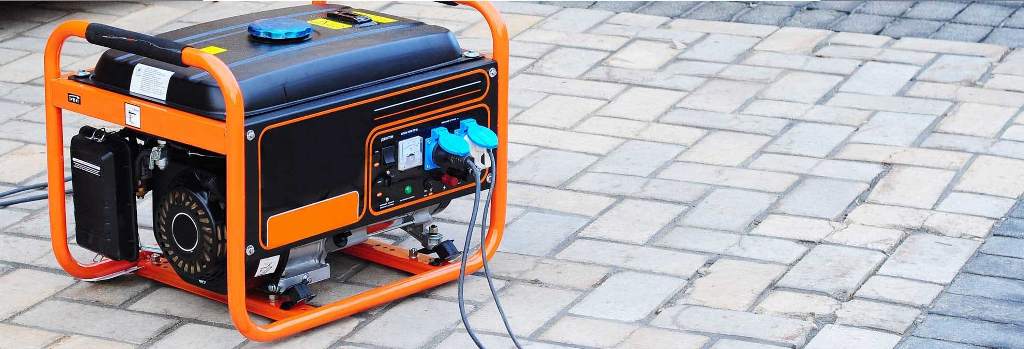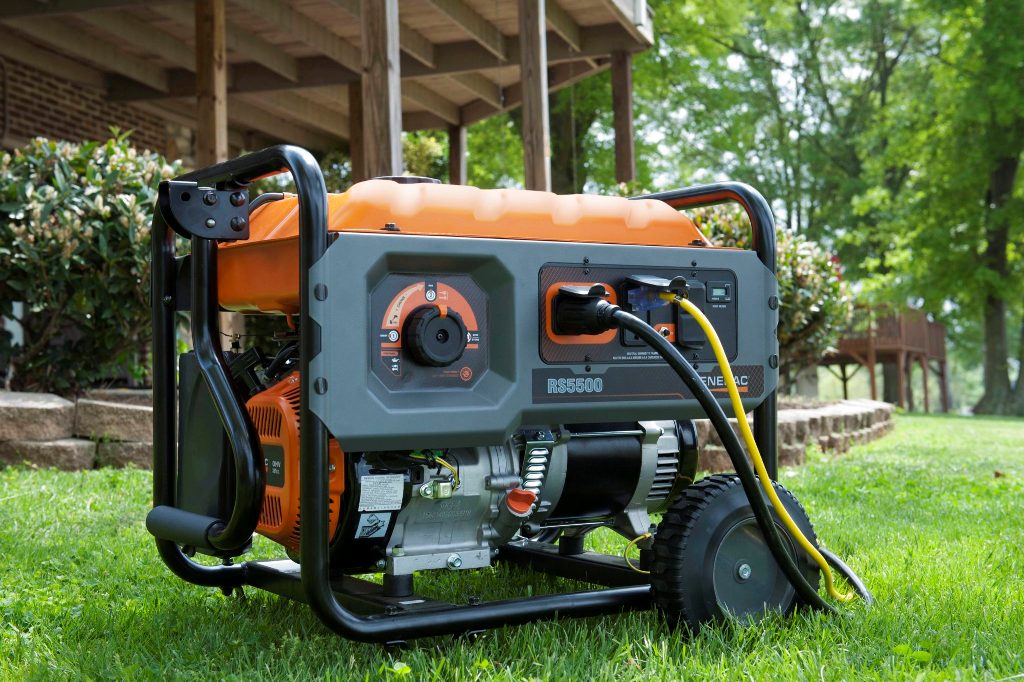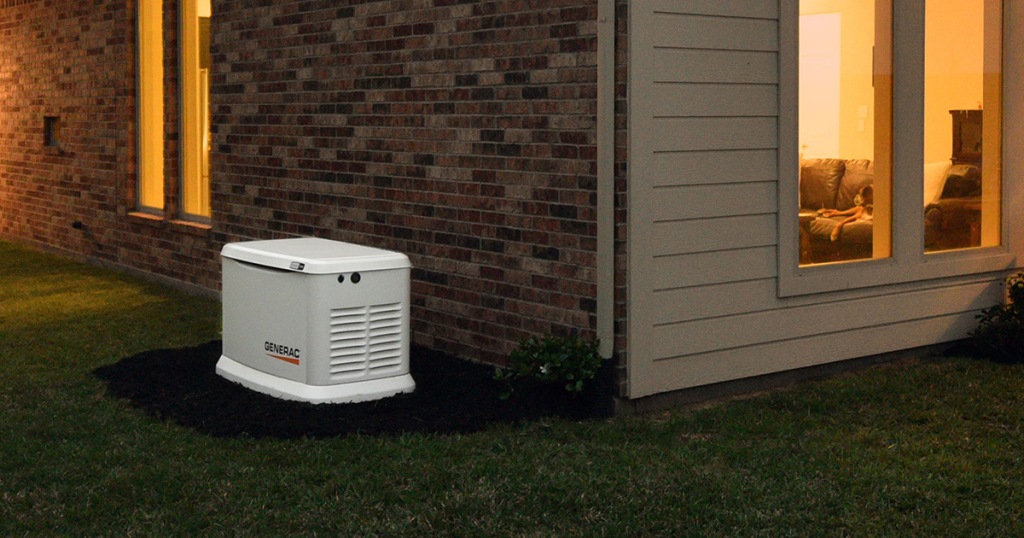Sitting in the dark, sweating and eating cold food is only a couple of the inconveniences people have to face during a power outage.
On top of this, having your basement flooded without a working sump pump and potentially going crazy without the TV or computer, only adds to the distress. Luckily, having a generator can be a solution to all of these problems.
In this article, we’ll discuss which generator is the right one for you so that you can turn gloomy, dark days without power into a comfortable situation.
Types of Power Generators
Generators for households come in a choice of two types – portable and standby generators. Research your power requirements and weigh the pros and cons of each generator before you decide to make a purchase.

How to Determine the Right Size Backup Generator for Your Needs
The location of your home plays an important factor in determining your power needs. If you live in a warmer region, you’ll need your generator to power the air conditioner, whereas the central heating system is essential for those living in colder places.
Power outages that occur once in a while are manageable. However, if your area experiences frequent blackouts or natural disasters, power can become a scarce commodity. That’s why it’s wise to invest in a generator to prepare for such emergencies.
Begin your generator research by calculating the power of the appliances that you wish to keep running during an outage. Make a list of these items and jot down their wattage. Then, add the wattages and multiply by 1.5. Now you have the minimum power you’ll need for your generator.
Remember to include essential appliances like fridges, freezers, laptops, well pumps, and sump pumps in case your basement floods. Exclude appliances that you can do without, like the oven and air conditioners (if you live in cooler climates) as these consume a large amount of power.
Portable Power Generators
Pros – These small, portable generators are handy if you’re looking to power a small number of appliances at home. They’re also cheaper to buy and install than standby ones as you don’t need to install a subpanel by an electrician.
Since they’re small, they’re easy to store in a garage and can be wheeled out when needed. Once they’re connected to the home circuit breaker via a transfer switch, they can power as much as a standby generator can.
Cons – One of the downsides of this generator is that you have to run extension cords to all appliances you wish to power and you’re limited by the number of outlets.
This can be overcome by installing a manual transfer switch panel so that you can power entire circuits in the house. Keep your budget in mind before choosing this, as the material alone costs about $200 and the electrician charge is at least $500.
Another problem is that most portable generators run on gasoline and can use between 12 and 20 gallons a day. Alternatively, if you choose to buy liquid propane or natural gas-powered generators, fuel may be harder to find during inclement weather if you run out.
What’s more, these generators are noisy and when used during unfavorable weather such as rainstorms, they must be shielded by a model-specific cover and free-standing canopy.
However, if you’re well aware of your power usage and consume within the wattage limit of the generator, you can use it comfortably during a blackout.
Looking for More Information?
Generator shopping can be confusing and tedious, especially when you have to compare features and price tags to find out the right one for you.
But we’ve got you covered: for a one-stop solution to your generator woes click here. Here, you will find all types of generators so that you can select which suits you best.

You can also have them professionally installed without the hassle of hiring them yourself.
Standby Generators
Pros – The biggest advantage of these generators is that they start automatically as soon as the power goes out so you don’t have to lug around a generator or plug anything in. This is because they contain a transfer switch which constantly monitors utility voltage.
Once the power goes out, the switch connects to the generator and you’ll have your power back on before you even realize there’d been an outage.
Additionally, they can power everything in your home at the same time so you don’t have to limit your appliances. This includes central air conditioners, kitchen appliances, and other power-consuming devices.
Another great benefit is they can run for long periods of time – even as long as a couple of weeks because they run on natural gas or propane. The fact that they work silently and don’t need a weatherproof cover is the cherry on top.
Cons – The only real problem with these generators is the price tag because they power larger devices for longer and need to be installed by professionals. Standby generators generally use fuel from your home fuel line otherwise you have installed a fuel tank.
If you live in an area that sees frequent power outages or experiences unpredictable weather and you can pocket the costs, then standby generators are the ideal option for a stress-free life during blackouts.
Stay Safe
People are often more concerned about accidents that may occur during a power outage. However, carbon monoxide poisoning from portable generators is a deadly silent killer responsible for far more deaths in the U.S.
To reduce this risk, install a carbon monoxide detector or buy a generator with a built-in sensor that will cause it to automatically shutdown at dangerous levels. Always follow these safety guidelines to prevent any potential disasters from occurring:
- Never keep a portable generator in an enclosed space
- Keep it at least 20 feet away from your home
- Don’t place them under canopies, awnings, and carports
- Direct the exhaust away from your home
Use extension cords of at least 14 gauge to carry adequate power and don’t overload the generator by plugging in high voltage appliances as they can fuse the generator and damage your appliances.
Most importantly, absolutely do NOT connect your generator to your household wiring. The electricity may feedback through the circuit breaker panels into the utility lines and you might potentially kill utility personnel working miles away.
Conclusion
Hopefully, now you’ll have some idea about the types of generators and which one is best suited to your needs. Keep your needs and budget in mind before buying a generator and follow the safety instructions properly to keep yourself and your family safe and comfortable during the next power outage. Good luck!

